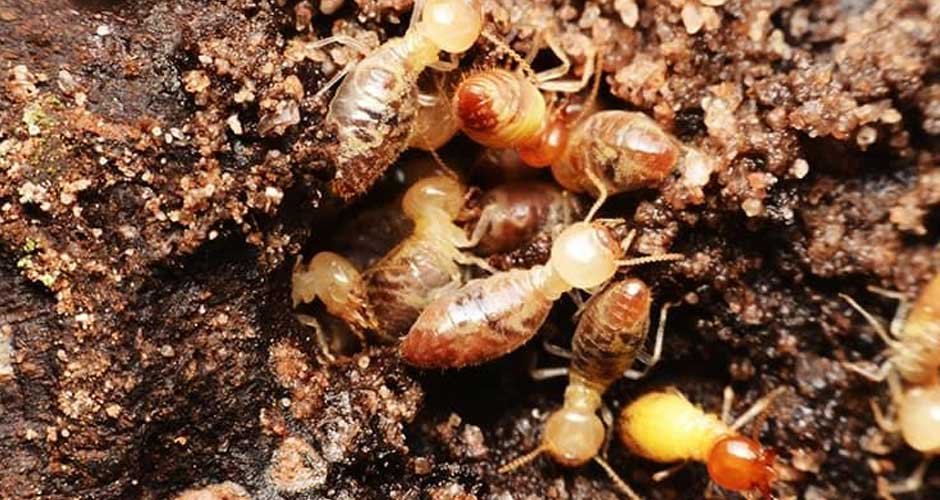One of the biggest nightmares any homeowner can face is a termite infestation. Termites are dangerous pests, especially because they live in a colony and can cause structural damage to properties. Dealing with termite problems using DIY methods can be hard, which is why it is advisable to contact a pest control service provider in your local area.
However, if you’ve opted to control the growing infestation on your own, then you need to know everything about termite treatment, including the options available, their success rate, and the most recommended solution.
Below are the most effective termite treatment options to explore to keep your home and property protected.
What Are the Most Effective Termite Treatments?
Non-Chemical Termite Control Treatments
Non-chemical termite treatments are an environmentally friendly approach to control the termite population. This approach often requires the use of natural or biological methods that control termites without toxic chemicals.
Some of the common non-chemical termite control options include;
- Using or installing a physical barrier to fence out the termite population.
- Using steel mesh or sands with specific grain sizes to control termite spread
- Introducing biological control agents like fungi and nematodes to kill the termite population.
It is important to note that most non-chemical termite control solutions aren’t 100% effective. In fact, they are often advised in combination with other treatments for the most effective results.
Chemical Termite Control Treatments
Chemical termite control treatments leverage active ingredients, often poisonous, to kill the termite population.
In the United States, most chemical termite control treatments have been subjected to several studies to ensure they effectively control the termite population. However, there are increasing concerns about using heavy chemicals in pest control, especially as they can cause environmental pollution and imbalance.
Chemical termite control treatments can also be dangerous to humans and animals, hence the several warnings accompanying such toxic products.
Despite the toxicity and health risks, chemical termite control treatments have the highest success rate. They can often be paired with other treatment solutions to wipe out the current termite population and prevent future infestations.
To use chemical termite control treatments, you should consider the following approved treatments;
- Termite baits
- Liquid soil-applied termiticides
- Building materials coated or impregnated with termiticide
- Chemical treatments for wood and wooden construction materials
Available chemicals used in termite control can be in solid, liquid, or gaseous forms. The applications are often different, however, they often generally work by contact.
Conventional Barrier Treatments
This is another effective termite control solution that focuses on the soil upon which the termites live and build their colony. This treatment approach, if done correctly, can wipe out an entire colony of termites and protect against future infestations.
However, conventional barrier treatments have a higher safety and health hazard, especially if done incorrectly. Incorrect application of this treatment solution can cause water and land pollution, which can lead to health and safety issues for residents in the surrounding areas.
It is often advised that homeowners consult with professional pest control service providers to manage this treatment and ensure that it is correctly applied.
The most common active ingredients used in conventional barrier treatment for termite infestation include;
- Bifenthrin
- Permethrin
- Fipronil
- Cypermethrin
- Chlorfenapyr
- Chlorantraniliprole
- Acetamiprid
- Imidacloprid
- Esfenvalerate
How to Handle Termite Infestation?
Termite infestations are often scary. The problem can also be disastrous, especially when left unattended for a long time. Dealing with termite problems as soon as they are detected is recommended, as this reduces the amount of havoc wreaked on your property.
In addressing termite problems, below are some recommended steps
Contact a Reputable Pest Control Company
Termites live in colonies and have a high reproduction rate. This means that DIY control methods may often fail, thus exposing the property to recurrent termite problems.
It is best to contact a reputable local pest control company offering termite control services. Discuss your termite control needs with them and ask about their success rate.
It is best to request quotes from 2 to 3 pest control companies in your area for the best price and service quality.
Read Pesticide or Chemical Instructions
Most homeowners prefer to save money by choosing DIY methods. If that’s you, then ensure to read the instructions for the use of the chosen pesticide before applying it.
It is also important to wear the right protective equipment like hand gloves, long-sleeve shirts, protective goggles, boots, long and thick trousers, as well as respirators.
Wearing the right protective materials will prevent direct contact and health risks.
Be Chemical and Safety Aware
Whether you’ve hired a professional or not, safety awareness is important. Ask questions about how soon you can return to your property following the termite control treatment.
Returning earlier than normal can expose you to toxic fumes and harmful chemicals.
Are you dealing with a stubborn termite infestation? Try any of the following options to ease your peace of mind.


